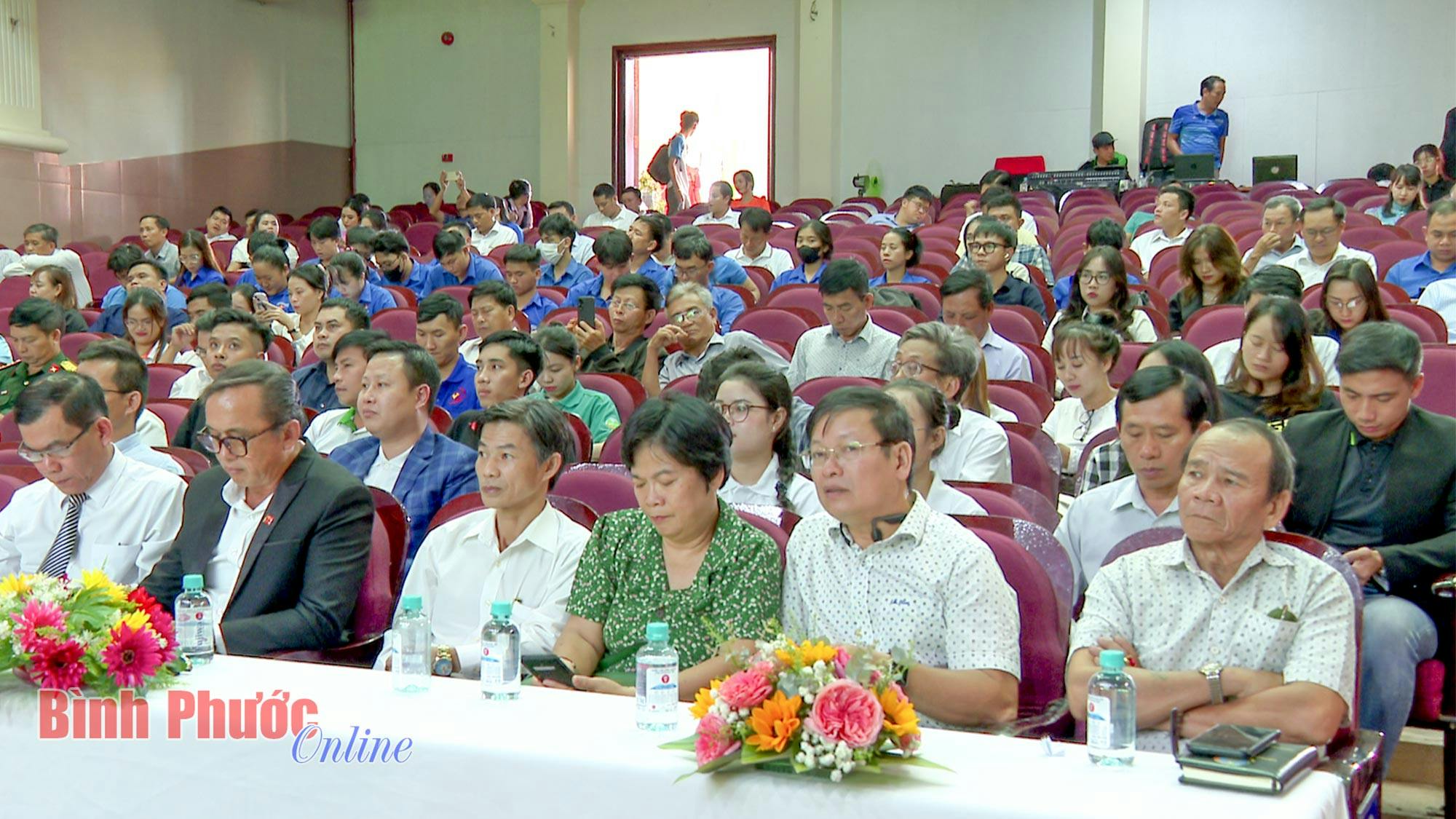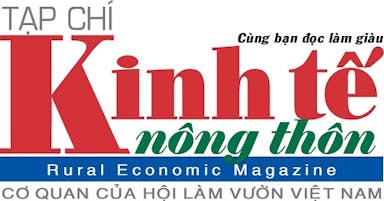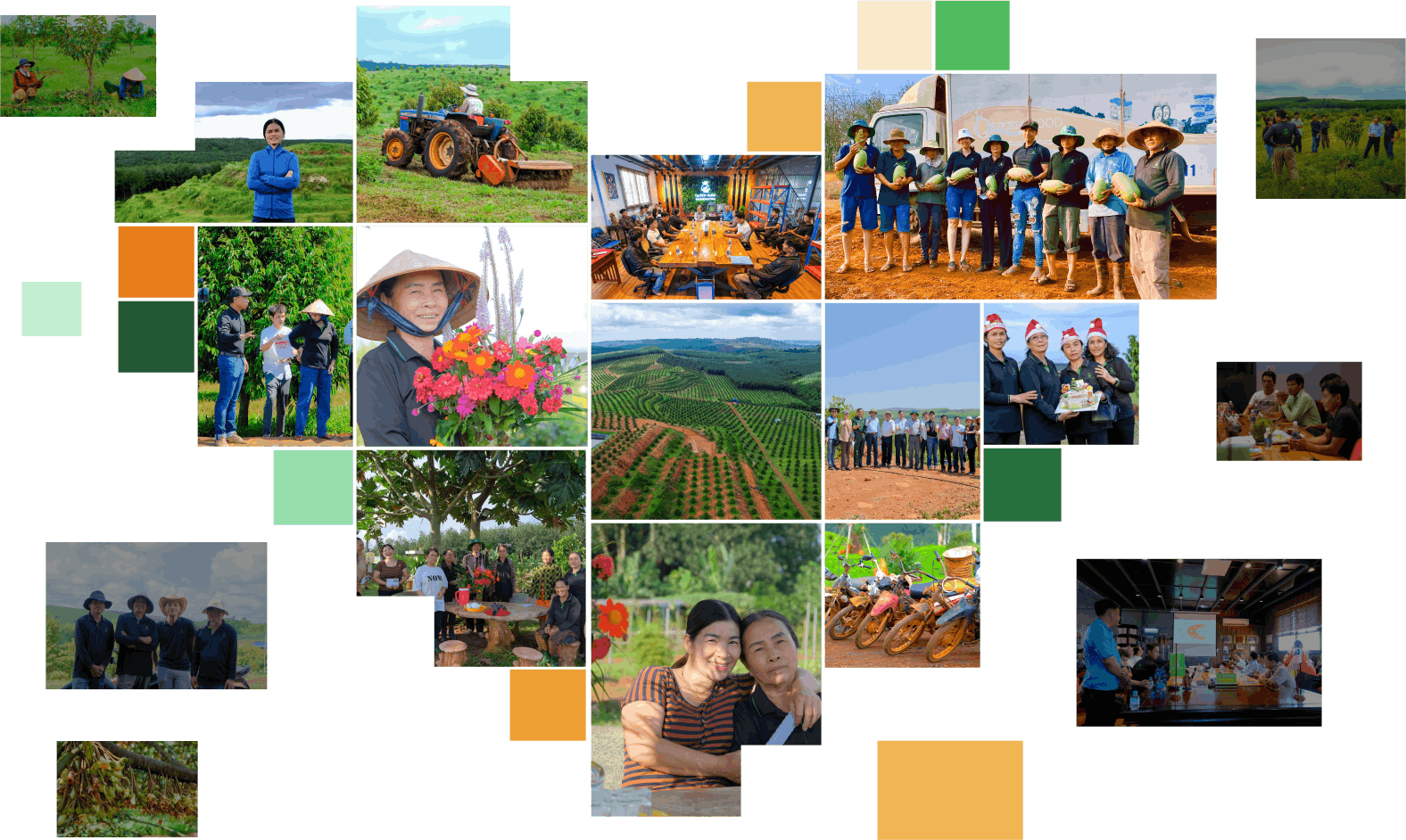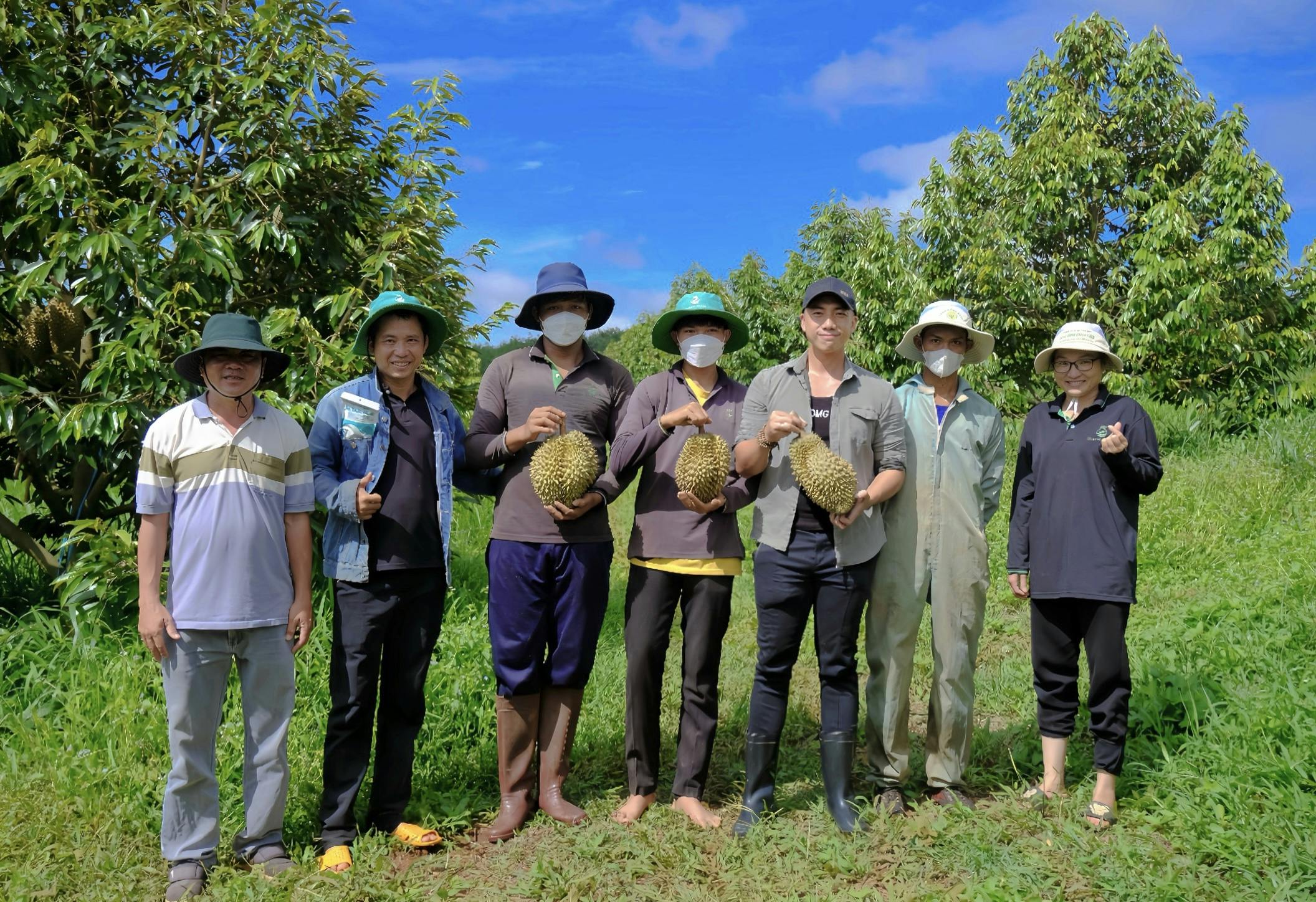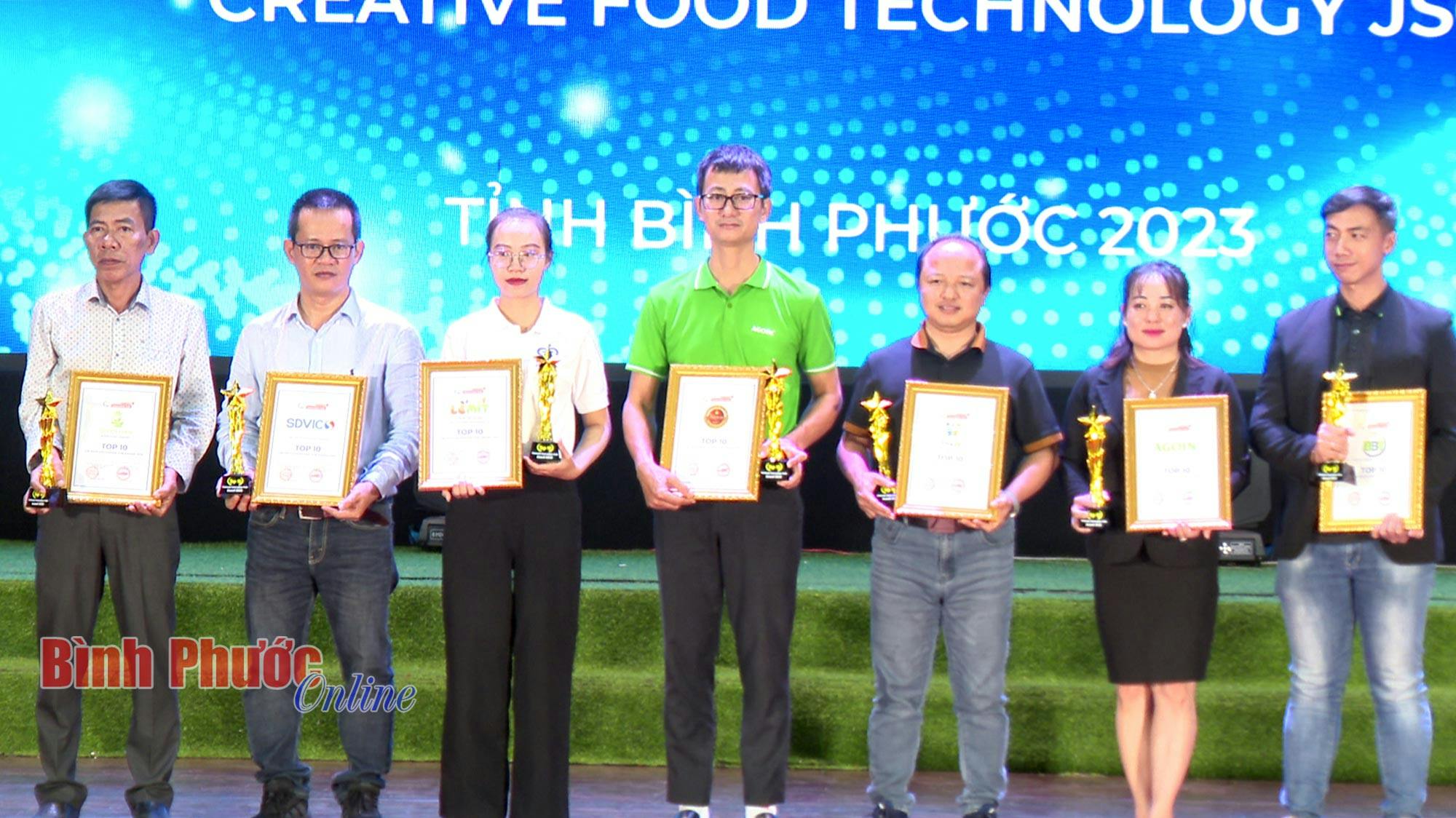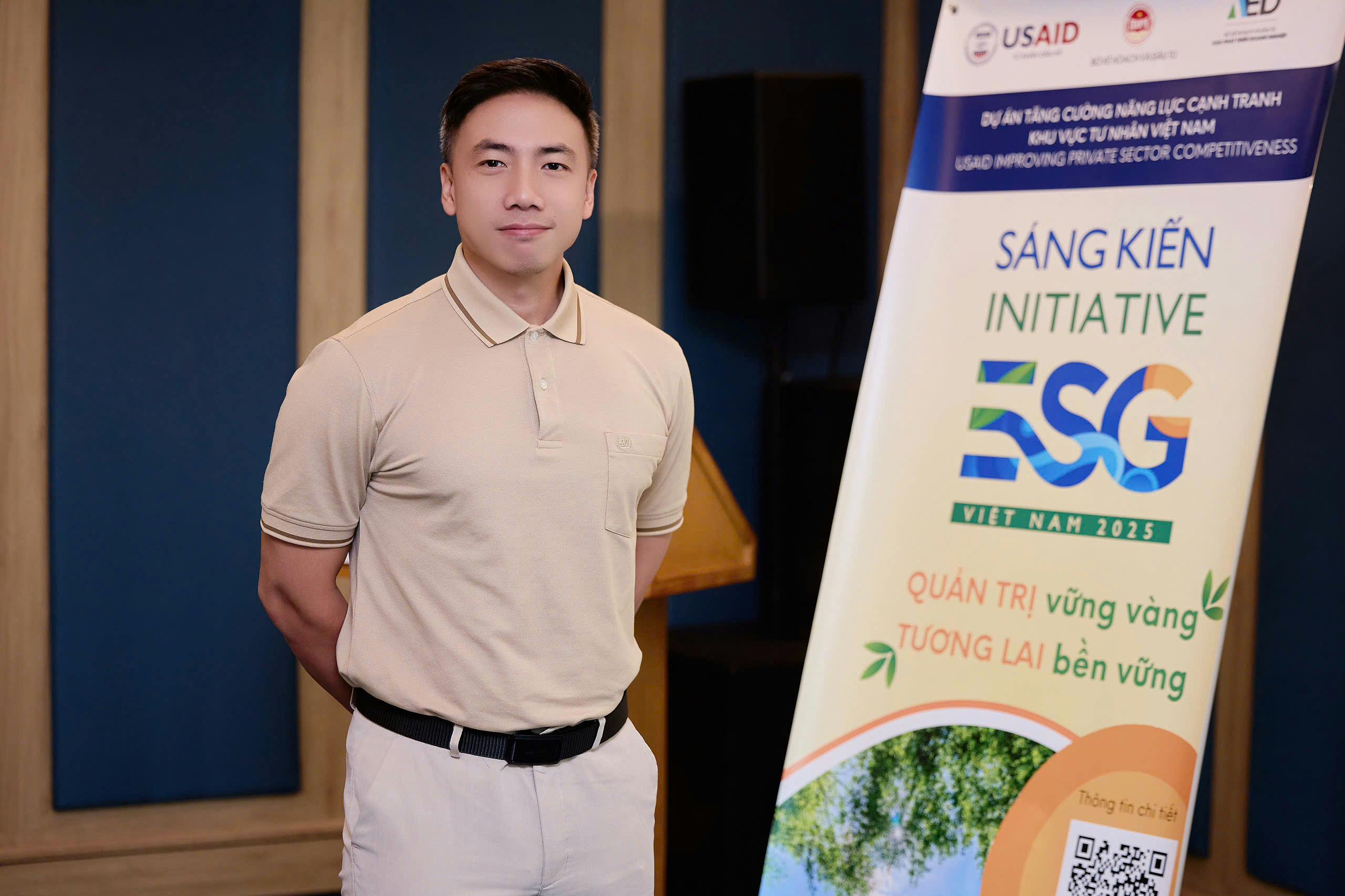

Small businesses ‘run the marathon’ with ESG
According to the Ministry of Planning and Investment, about 4,000 Vietnamese enterprises have made the transition to a sustainable development model thanks to resources from international organizations. This number is like a drop in the ocean when there are up to 1 million large and small enterprises nationwide that need support to practice green transformation.
“Being poor is also an advantage”
The green tour in the land of coconuts begins at the pier. When getting off the boat, each tourist will receive a small notebook, a pencil and a “net zero” passport. The tour guide will guide you on how to record in the notebook, such as the amount of emissions from each product and activity, measures to offset emissions, etc.
Following the ebb and flow of the tide, the boats and canoes begin to weave through the cool coconut groves, following the mangroves on both banks of the river, blending into the simple life of the local people. The tide of this area changes its flow four times a day, each time for six hours, the water rises and falls. “C2T boats use the power of the high tide to move, reducing fuel consumption, which means reducing emissions,” explained Vo Van Phong, General Director of C2T Communications and Tourism Company.
The boat docks and goes ashore, visitors will visit the coconut candy village, listen to traditional music, taste garden honey, quench their thirst with coconut water from many different coconut varieties, and listen to stories about the life of coconut trees in the context of climate change and salinity.
Since March 2024, C2T has started introducing “Net Zero Passport” (NZP) - an exciting green tour to Ben Tre. In November, C2T won the 2024 Kotler Awards in the field of marketing with the pioneering project NZP. This is the only tourism enterprise in the Mekong Delta to win this award.
But it was not just in a few short months of 2024 that C2T was awarded this award. It was a long process that began many years ago.
Tourists to the West are often taken to monotonous eco-gardens and tourist areas, have lunch with fried elephant ear fish, sour snakehead fish soup, buy some snacks and then go home. Phong began to diversify Ben Tre's own products.
For the gardeners, Phong suggested renovating the fruit garden, adding dining tables under the trees, and making the "monkey bridge" more sturdy. When the garden owner's family has a death anniversary or wedding, C2T will invite guests to attend. Foreign guests and guests from other regions are also interested in the parties of the Western people...
Regarding the coastal area, C2T has formed a mangrove forest tour. Guests can soak their bare feet in the fine sand of the alluvial plain, fish for mudskippers, trap crabs, grill fish, pick mangrove fruits to cook sour soup...
"Being poor is also an advantage", Phong said about C2T's ESG practice process.
First, C2T implemented cheap tours for all subjects, then began to build waste classification and recycling standards. After drinking the coconuts, or at the processing facility, the coconut fiber is used to make fiber, the coconut shell is used as fuel, and handicrafts. Then, solar energy is used. Phong dreams of having more green OCOP products at the tourist destinations of the NZP tour.
"Up to now, the customers of the net zero tour are groups, mostly foreign customers, from the Vietravel travel agency," Phong said.
Numbers and green create pressure together
In 2013, Queen Farm or Ecological Agriculture Company Limited was established in Binh Phuoc. That was also the turning point for Nguyen The Tung - who first entered the farming profession, learning about high-tech agricultural models.
The entire land of the farm was previously rubber forest. After many years of chemical fertilizers, the rubber forest land became hard, dry, and infertile. Initially, Queen Farm had to make efforts to improve the land by raising the pH and nutrients of the soil. The farm also pulled its own power grid, dug two separate water reservoirs, and invested in 75 kilometers of automatic irrigation pipes using Israeli irrigation technology. Everything was automated and controlled on a phone application.
It was not until 2020 that Queen Farm started planting its first durian trees. At that time, durian was not as "hot" as it is now. But Tung decided on a long-term plan, investing systematically in the farm.
To date, Queen Farm is a large-scale farm specializing in durian cultivation in Binh Phuoc, with more than 10,000 trees of three different varieties, including Dona (Monthong), Musang King and Ri6. In addition, the farm also grows Chiang Rai jackfruit, Mica star apple, cashew, banana, etc.
The farm is divided into four areas, divided into 30 lots. Each tree grown by Queen Farm has an electronic chip, identifying each tree. Workers on the farm or visitors can find information related to the tree, determine the exact location, etc.
The data warehouse is the premise for Queen Farm to implement ESG and that is also the farm's strength. But "The number is not finished yet, Green has arrived. The pressure is immense", Nguyen The Tung said and said that implementing green transformation is the new pressure for Queen Farm. However, previous steps in land improvement and approaching organic farming have really reduced the pressure for Queen Farm.
The farm began to look for suppliers of standard seedlings and materials, and the management and training process was stricter and more scientific. Household waste and waste from the production process were classified and put in the right bins, and organic waste was recycled into fertilizer.
The digitalization process made Queen Farm's irrigation and fertilization more effective. The entire 55-hectare farm only had 13 workers, including two agricultural engineers.
The challenge of green transformation for businesses
Up to 64% of Vietnamese businesses said they were not really ready for green transformation, more than 50% said green transformation was "not really necessary" (1). The survey results of 2,734 enterprises by the Private Economic Development Research Board (Board IV) under the Prime Minister's Advisory Council for Administrative Procedure Reform show that the green transformation process of enterprises faces three main challenges: capital, specialized personnel, and specific, appropriate solutions.
Thus, large and small enterprises must overcome difficulties on their own, with their own financial resources first and then rely on external support to some extent. Investing in ESG is a long-term story, many years.
At the end of 2024, Phuc Sinh Dak Nong Company received notice that it would receive $15 million in funding from an ESG fund in Europe for sustainable development activities. Previously, the group also received a $25 million grant from the Netherlands Climate and Development Fund (DFCD), and a small non-refundable grant of 431,250 euros for sustainable coffee development activities. Phuc Sinh contributed 25% to the non-refundable funding project.
Mr. Phan Minh Thong, founder and Chairman of Phuc Sinh, told Saigon Economics: “This is the result of Phuc Sinh’s investment in ESG very early. Since 2010, Phuc Sinh has spent VND800 million to invite ESG experts to advise on sustainable development.”
With the two small businesses Queen Farm and C2T, they also overcame the difficulties thanks to the founders and operators who were diligent in learning, passionate and steadfast in the idea of doing business sustainably, being friends with nature and not harming it.
The ESG journey begins with the leader's thinking, because business strategy cannot be independent, separate from sustainable development strategy, according to Mr. Nguyen Cong Minh Bao, co-founder and CEO of Green Transition Consulting & Training: "It is a top-down strategy, integrated into the business development plan".
But the ESG practice process should start with the workers who directly work in the factory, making the products. "Only machine operators know how to change operating procedures, small improvements to help equipment and machinery save energy", according to Mr. Truong Anh Hai, Deputy General Director in charge of safety, health, environment and community of NS BlueScope Steel Factory Vietnam. The company invested $3 million in a heat recovery system in the drying oven. “The amount of money seems large, but within 3-5 years we have recovered the capital. The following years are the net profit of this investment,” said Hai.
Practicing ESG is not just about one person or one department. It is the “consensus” of a whole group, working within a common framework, creating cohesion, so the turnover rate is lower. “The turnover rate at our company is only around 7-10%, lower than the industry average of more than 15%. Low turnover means we increase productivity, reduce training costs and other resources,” said Hai.
